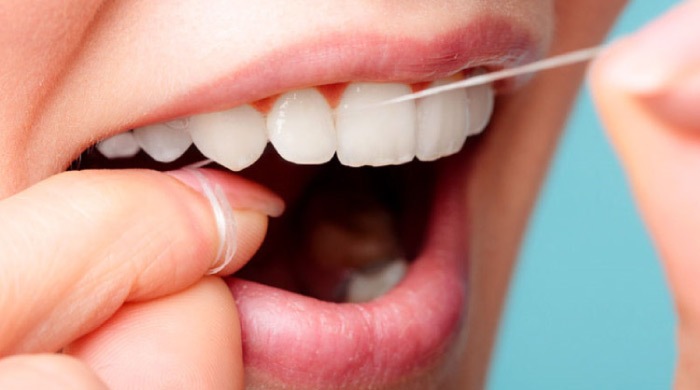Unraveling the Mystery: Why Do My Gums Bleed When I Flossing?
Maintaining a healthy oral hygiene routine is crucial for overall dental health. Flossing is an essential part of this routine, removing plaque and debris from between teeth that brushing alone cannot reach. However, encountering bleeding gums while flossing can be concerning. This article explores the reasons behind bleeding gums when flossing and offers strategies to achieve healthy, bleed-free gums.
Disclaimer: It is important to note that the information in this article is for general informational purposes only and should not be a substitute for professional medical advice. The cause of your bleeding gums can vary significantly, and a proper diagnosis from a dentist or dental hygienist is crucial.
Understanding Gum Health: The Foundation of a Bright Smile
Healthy gums are firm, pink, and don’t bleed easily. They play a vital role in supporting your teeth and preventing gum disease. Here’s a breakdown of the key components of healthy gums:
- Gingiva: The visible portion of your gums that surrounds the base of your teeth.
- Periodontal Ligament: Connective tissue that anchors your teeth to the jawbone.
- Alveolar Bone: The jawbone that supports your teeth.
The Culprits Behind the Bleeding: Unveiling the Causes of Flossing-Induced Gum Bleeding
Several factors can contribute to bleeding gums when flossing:
- Gingivitis: This is the mildest form of gum disease, characterized by inflammation of the gums. Gingivitis is often caused by plaque buildup along the gum line, which irritates the gums and makes them more prone to bleeding.
- Improper Flossing Technique: Using too much force or an aggressive flossing technique can irritate and damage the delicate gum tissue, leading to bleeding.
- Pregnancy: Hormonal fluctuations during pregnancy can make gums more sensitive and prone to bleeding.
- Certain Medications: Some medications, such as blood thinners, can increase the risk of bleeding gums.
- Vitamin Deficiencies: Deficiencies in vitamin C or K can contribute to gum problems and bleeding.
- Underlying Medical Conditions: Certain medical conditions, such as diabetes, can affect gum health and increase the risk of bleeding.
From Bleeding to Gleaming: Effective Strategies for Healthy Gums
Here are some steps you can take to address gum bleeding and promote healthy gums:
- Gentle Flossing: Use a soft-bristled floss and adopt a gentle technique. Curve the floss around the base of each tooth in a C-shape and move it back and forth carefully to remove plaque.
- Improved Brushing: Brush your teeth twice a day for two minutes each time, using a soft-bristled toothbrush and fluoride toothpaste. Pay particular attention to the gum line.
- Regular Dental Cleanings: Schedule regular dental cleanings, typically every six months, for professional plaque and tartar removal.
- Lifestyle Modifications: Maintain a healthy diet, limit sugary drinks, and don’t smoke, as these habits can contribute to gum problems.
- Addressing Underlying Conditions: If you suspect an underlying medical condition might be affecting your gums, consult your doctor.
Important Note: If you experience persistent gum bleeding despite improving your flossing technique and oral hygiene routine, consult your dentist or dental hygienist for a proper diagnosis and personalized treatment plan.
Don’t Be Afraid to Ask: FAQ About Bleeding Gums When Flossing
Q: Is it bad if my gums bleed when I floss for the first time?
A: Slight bleeding when you first begin flossing might not be a cause for concern. However, if the bleeding persists after a few days of proper flossing technique, consult your dentist.
Q: Should I stop flossing if my gums bleed?
A: Generally, no. Bleeding gums can be a sign of gingivitis, and flossing is crucial for removing plaque that contributes to gum inflammation. However, use a gentle technique and consult your dentist if bleeding persists.
Q: What if my gums bleed a lot when I floss?
A: Excessive bleeding can indicate a more advanced stage of gum disease. Consult your dentist for a diagnosis and treatment plan.
Q: Are there alternatives to flossing if my gums bleed?
A: If flossing is too uncomfortable due to bleeding gums, discuss alternative methods with your dentist. They might recommend interdental brushes or water flossers as effective ways to clean between teeth.
By understanding the causes of bleeding gums and adopting proper flossing techniques and oral hygiene habits, you can achieve healthy, bleed-free gums and maintain a bright, confident smile.

